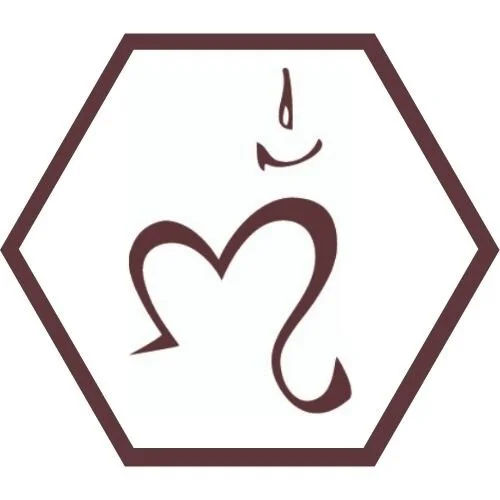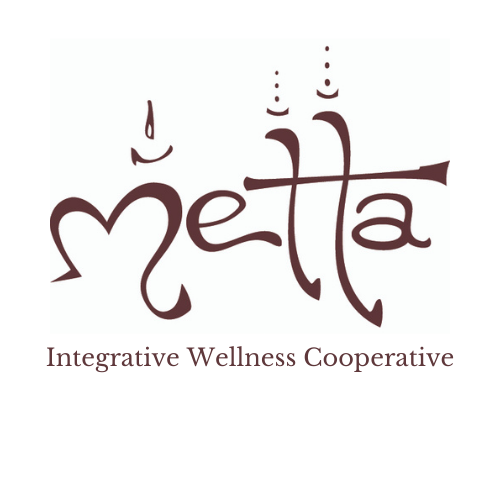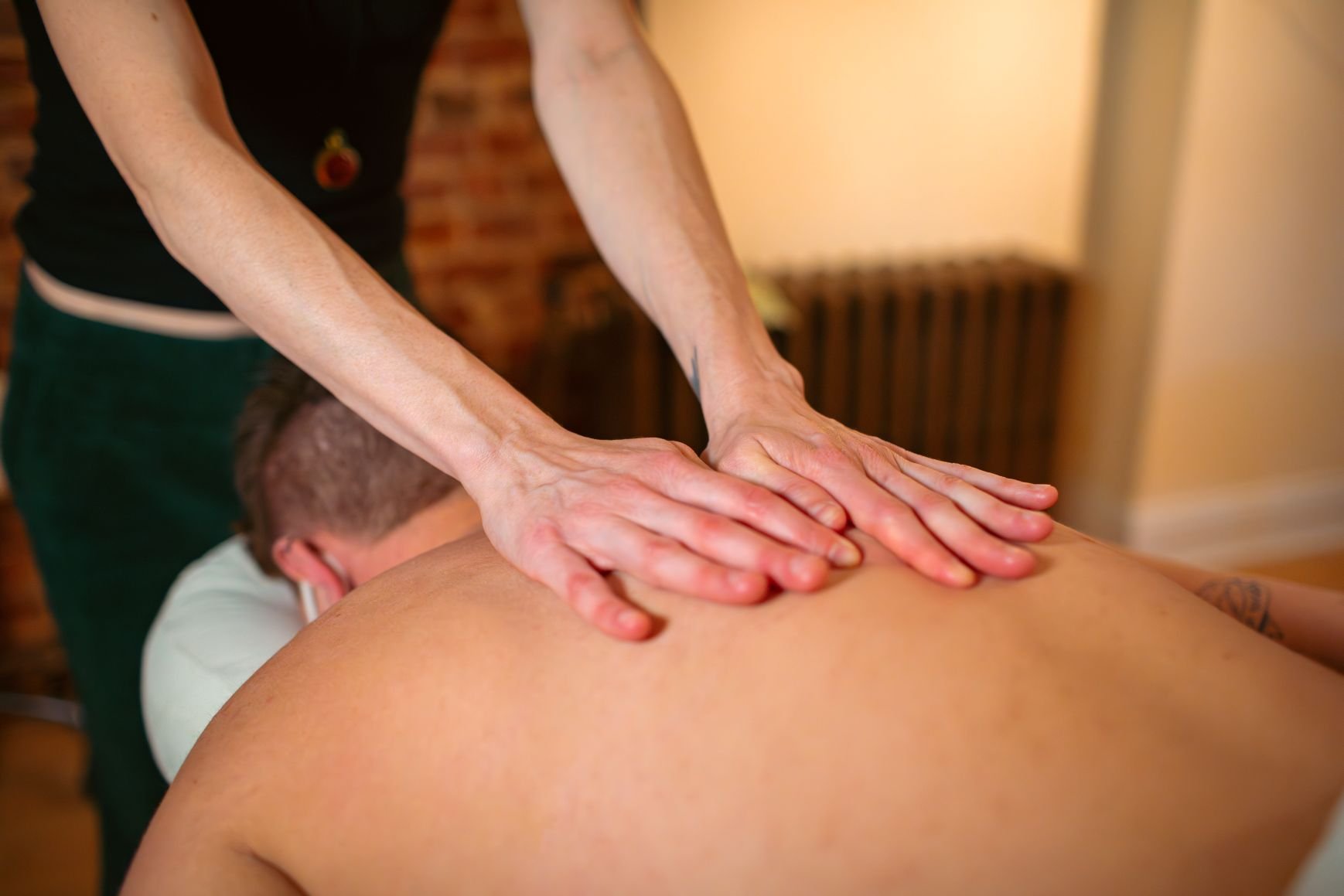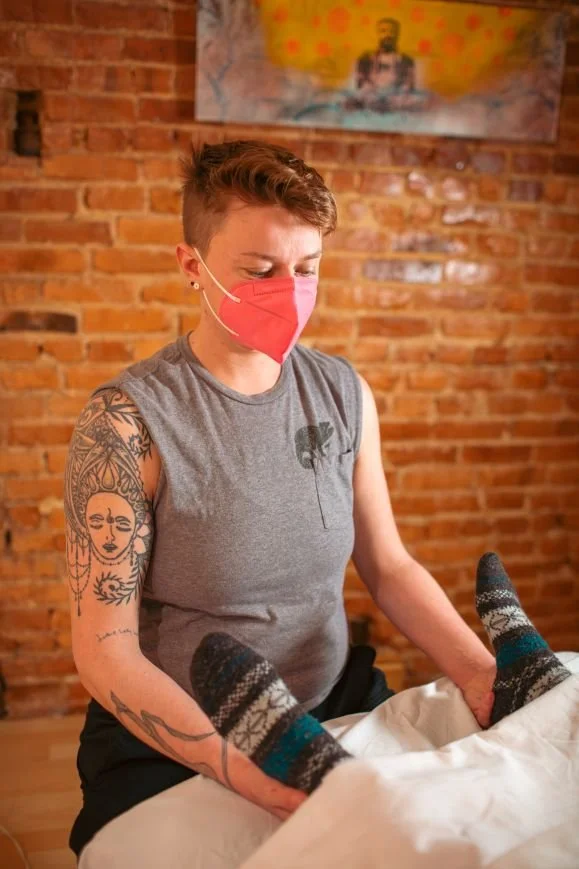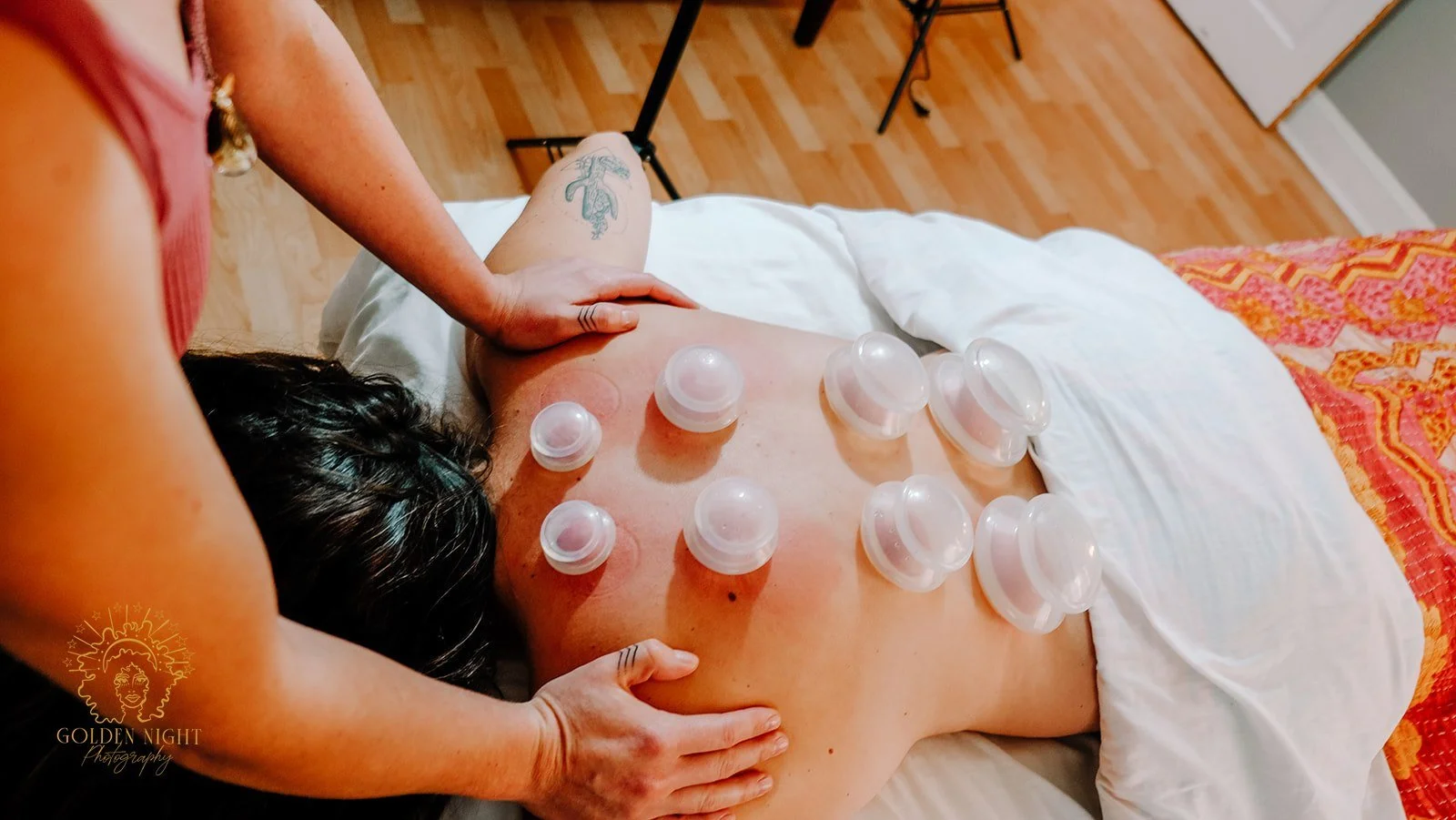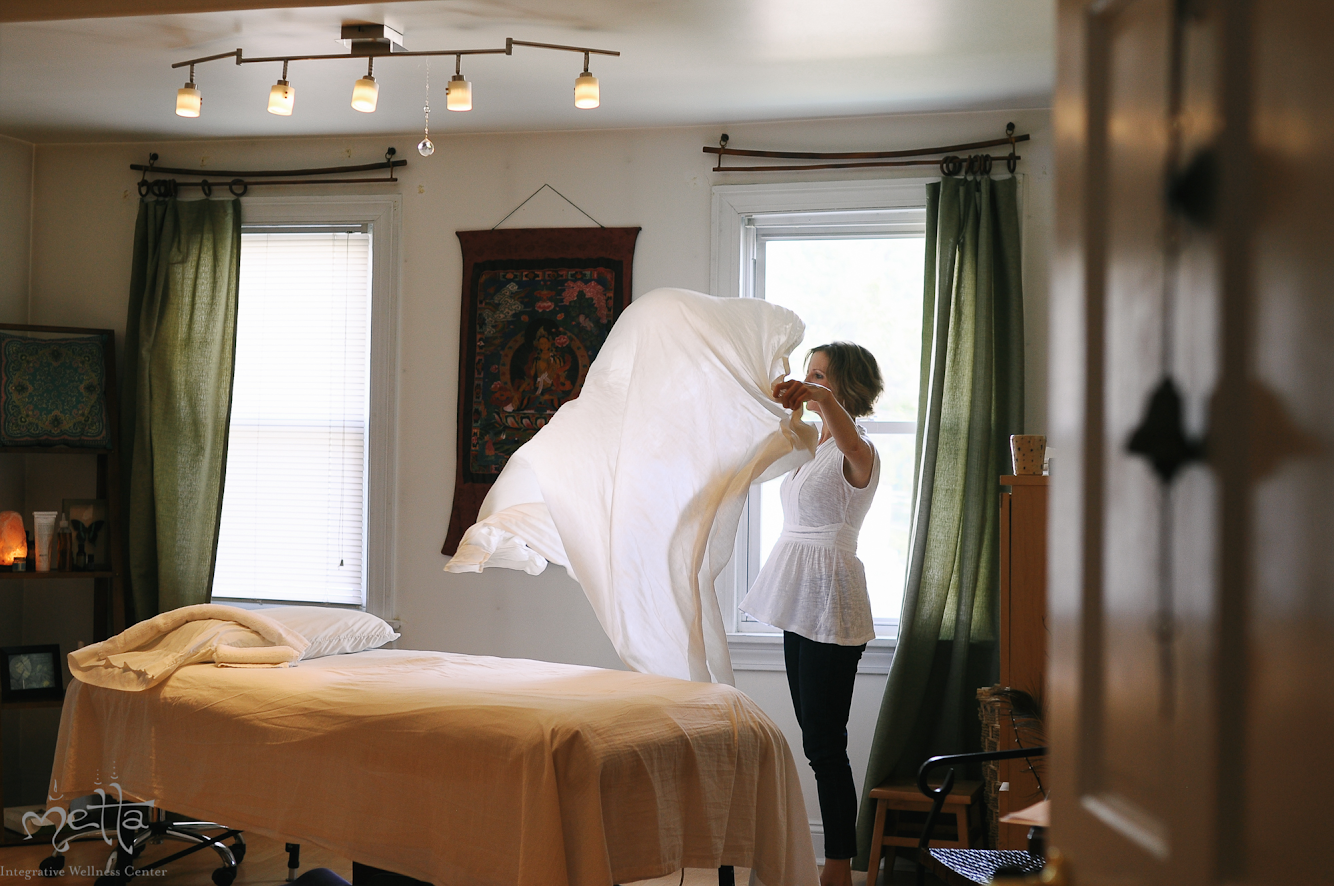
Massage & Bodywork
Learn more about the bodywork and massage offerings Metta Integrative Wellness has been offering the greater-Baltimore community for the last decade.
Integrative Therapeutic Massage
Each custom session is uniquely crafted for you, every visit. Our talented therapists brings a different set of skills into the session. Every one of our therapists are guaranteed experts in Swedish and Deep Tissue massage. Each therapist will combine these massage techniques with other skills that they are trained in, including: aromatherapy, cupping, hot stones, myofascial release, craniosacral therapy, and more. Scroll down to learn more about each of our different modalities and add-ons.
-
Our signature integrative therapeutic massage integrates Swedish and deep tissue, combined with the other unique skills your therapist has to offer. Options from 30 - 120 minutes, with specialties including myofascial release, lymphatic drainage, neuromuscular therapy, cupping, aromatherapy, & hot stones. Prices vary based by massage therapist.
-
Integrative therapeutic massage, adapted for the needs of pregnancy. Options from 60–90 minutes, available on the floor mat, belly-down, or side-lying. Prices vary by massage therapist.
-
Minors of all ages can benefit from massage and bodywork! An accompanying adult guardian must stay in the room with all children under 16, and must be on premises with minors 16-17. You can book online for children 8 and older. For younger children or infants, please schedule a consultation first.
Bodywork
Bodywork is a practice of movements and manipulations of the body through various techniques and therapies.
-
Craniosacral therapy (CST) is a light-touch modality with origins in the Osteopathic medical tradition. At Metta, we have practitioners trained in the Upledger and biodynamic styles of craniosacral therapy. The therapist uses gentle contact and highly attuned perception to "read" tension patterns in the recipient's systems: musculoskeletal system, fluid systems, and electromagnetics. For many recipients, CST is able to reach a deeper level of nervous system activity, yielding deep relaxation and results that build over time. Many patients with chronic pain, incurable conditions, or undiagnosed symptoms find relief through craniosacral therapy.Biomechanical
The biomechanical style of CST, commonly taught through the Upledger heritage, uses light-touch manipulation ("no more than 5 grams of pressure") to initiate change in the musculoskeletal system.
Biodynamic
They biodynamic or 'osteopathic' style of CST relies on the recipient's own system to effect change. The light touch of the therapist is used to provide bio-feedback into the nervous system so that change comes from within, rather than being manipulated from an external source.
Common ailments that find relief through craniosacral therapy include: tension headache, migraine, eye tension, jaw tension (TMJ), tech neck, idiopathic neuropathy (numbness or tingling), joint pain, hypermobility, fibromyalgia, fatigue, visceral pain, irritable bowel (IBS), pelvic pain, and incontinence.
-
Lymphatic drainage is a gentle massage technique that moves lymph (or "water") through your body to reduce swelling, improve immune function, and clear toxins from the body. The lymphatic system is a series of vessels (like veins) that move interstitial fluids out of the tissues and return them into the circulatory system. This fluid, or lymph, is cleaned and disinfected through lymph nodes all throughout this system, making it an essential part of the body's immunological defenses.
Manual Lymphatic Drainage
Developed in France in 1932 by Emil and Estrid Vodder, MLD has grown to be the most well known manual technique to assist lymph flow and aid in drainage of tissues. The skin is lightly stretched and torqued in a specific manner, based on lymphatic anatomy, in order to facilitate fluid flow back to the heart. MLD works with the full-body lymphatic system, including the face and the scalp.
Glymphatic Drainage
Glymphatic, or venous sinus drainage, promotes fluid drainage from inside the skull, around the brain. The fluid system of the cranium does not use the same vessels (like veins) as the full-body lymphatic system. Rather the water-like fluid, here called "glymph", is drained through a system of vein-like sinuses. This work supports nervous system health and the cleansing of cerebrospinal fluid.
Common benefits of lymphatic drainage include: improved surgical outcomes, pre-surgical preparation, and relief from post-surgical swelling, everyday swelling, fluid retention, sinus pressure, pressure headaches, eye tension, brain fog, and fatigue.
Bodywork Add-Ons
In addition to bodywork sessions listed above, you may add on optional modalities to your session. Some of these methods and modalities can be booked as a stand-alone, speciality bodywork session. Click on each add-on below to learn more.
Our massage therapists have all followed their own paths and passions when pursuing their bodywork skills beyond massage, so add-ons vary by therapist.
-
Addresses the muscles, connective tissues, and organs of the abdomen, improving digestive function, reducing pain, and improving emotional wellbeing. Abdominal manipulations help relax the belly and low back, eliminate waste, and clear stuck energy associated with negative emotions. This work can directly or indirectly address the large and small intestine, stomach, pancreas, liver, diaphragm, abdominal wall, and iliopsoas.
Book this service as an add-on to any massage. (See also Visceral Manipulation).
-
Bodywork for trauma resolution and embodiment of spirit, based in principles of biodynamic CST, Somatic Experiencing, and metaphor. As the body expresses its lived stories in present time, we consciously create conditions for change, where the body may bring unfinished issues to the foreground to transmute them.
Book this service as an add-on to Craniosacral Therapy or as a stand-alone Specialty Bodywork service.
-
Suction cups lift the skin promoting circulation, movement of lymph, and fascial release. This session is for cupping only.
Book cupping as an add-on to any massage, or as a stand-alone Specialty Bodywork service.
-
May be done clothed or unclothed. Neuromuscular massage therapy is a form of soft tissue massage that aims to alleviate chronic muscle and nervous system disorders and problems. It is mainly used to fix trigger points, circulation, nerve compression, postural problems and repetitive movement injuries.
Book NMT as an add-on to any massage, or as a stand-alone Specialty Bodywork service.
-
Acupressure and massage to the ears, hands and feet. Reflexology uses touch at the reflex points on feet, hands, or ears to address wellness of the full body and body systems.
Book Reflexology as an add-on to any massage or as a stand-alone Specialty Bodywork session.
-
Reiki is a very specific form of energy healing, in which hands are placed just off the body or lightly touching the body, as in “laying on of hands.” The intention is to create deep relaxation, to help speed healing, reduce pain, and decrease other symptoms you may be experiencing.
Book Reiki as an add-on to any massage or as a stand-alone Speciality Bodywork session.
-
Visceral manipulation uses light to medium touch and highly attuned sensory perception to identify and relieve strain patterns in the internal organs. Common examples are the liver, stomach, intestines, and and lungs. This work is indicated to have positive effect on abdominal restrictions, scar tissues, blood supply, and some back pain.
Book VM as an add-on to biodynamic Craniosacral Therapy, or as a stand-alone Specialty Bodywork session.
Clothing, coverage, and draping: no need to feel exposed
All our massage therapists utilize professional draping methods, ensuring that no part of the body is unnecessarily exposed or left out in the cold!
Additionally, all our offerings can be performed on clients with their clothing on! Be sure to choose a soft and relaxed outfit for your session to maximize your comfort.
If you have questions about what to wear, or how you’ll be covered, reach out to your therapist to chat about it before your session. There is no shame in asking questions and feeling comfortable.
